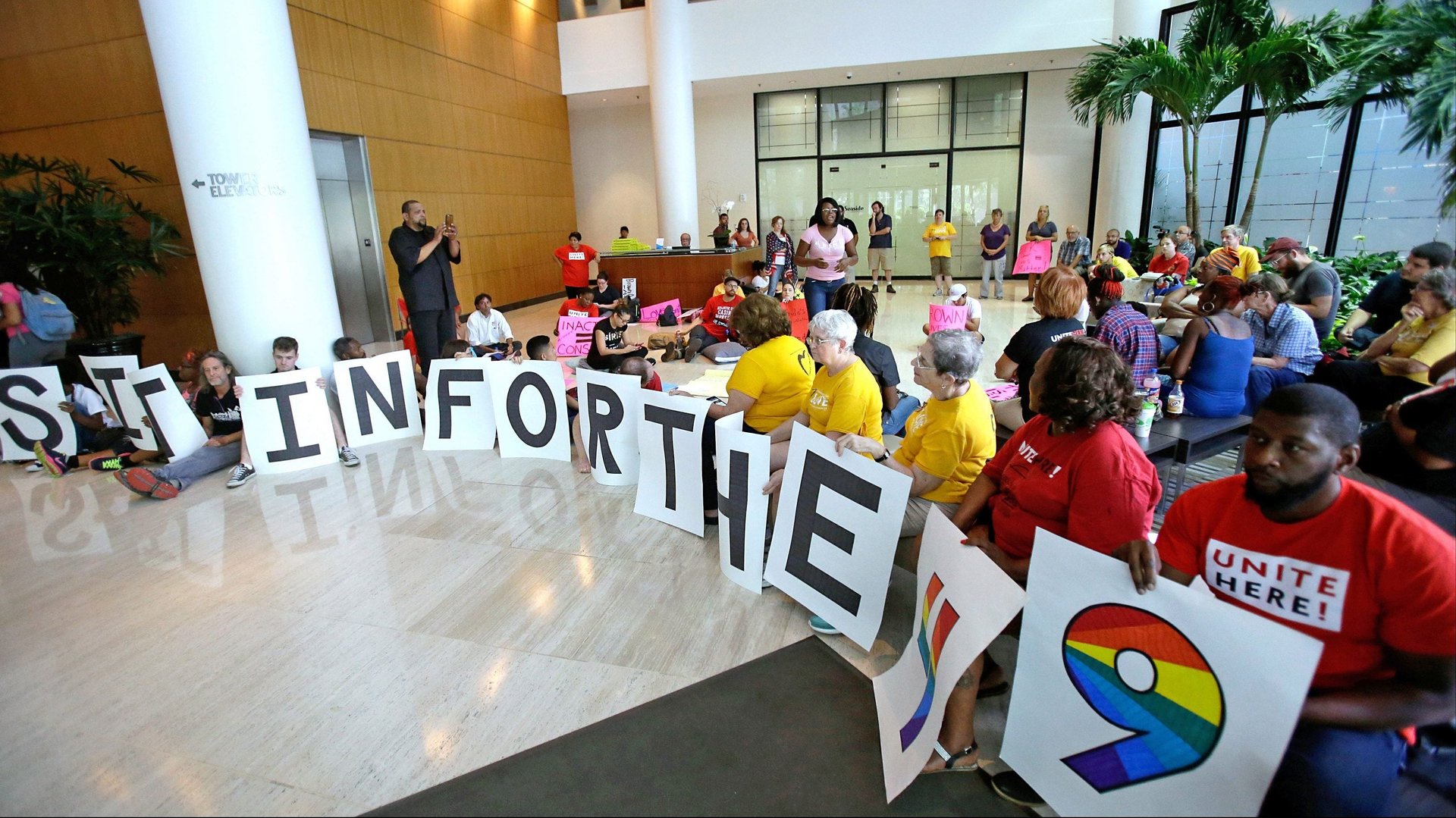The best time to talk about gun control is right after a shooting
After a gunman killed 58 people and injured hundreds more at a concert in Las Vegas, Nevada, US Democrats called for new gun control legislation. But two days after the shooting, senator Mitch McConnell deemed such a discussion “premature,” saying “it’s particularly inappropriate to politicize events like this.” It’s a refrain you hear again and again in the aftermath of mass shootings in the US. However, a new study suggests that right after a shooting might be the time when people are most amenable to considering gun control laws, regardless of political leanings.


After a gunman killed 58 people and injured hundreds more at a concert in Las Vegas, Nevada, US Democrats called for new gun control legislation. But two days after the shooting, senator Mitch McConnell deemed such a discussion “premature,” saying “it’s particularly inappropriate to politicize events like this.” It’s a refrain you hear again and again in the aftermath of mass shootings in the US. However, a new study suggests that right after a shooting might be the time when people are most amenable to considering gun control laws, regardless of political leanings.
The study, published in the journal Research & Politics, polled over 1,200 US citizens six days after the deadly Pulse nightclub shooting in Orlando, Florida, about their emotional state and political opinions. As one might expect, the more conservative a person’s political beliefs, the less likely they are to favor gun laws or to believe that the government intervention can prevent shootings.
But anxiety disrupts that pattern: staunch conservatives who reported feeling highly anxious after the Pulse shooting were more likely than less anxious conservatives to favor gun laws by around 40 percentage points. Highly anxious conservatives were 20 percentage points more likely than low-anxiety conservatives to think the government can prevent shootings. Liberals, on the other hand, were already likely to support gun control and to believe that the government could be effective in preventing shootings, so anxiety was less likely to change their beliefs.
Overall, the University of Kansas researchers conclude, anxiety leads to “a marked decline in ideological division.” In other words: post-shooting anxiety seemed to close the gap between liberal and conservative beliefs on gun regulation.
It’s not clear how long this effect would last after the initial shooting, but it suggests that the days immediately following a shooting might be the time people feel most compelled to act on gun legislation. And after that, we’re all the more likely to go back to our polarized corners.